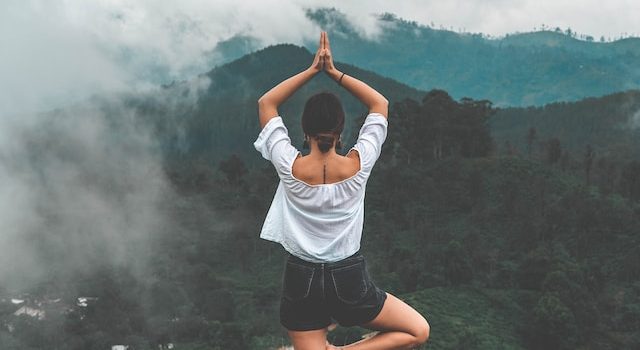
As we age, it is natural for our bodies to undergo certain changes that can impact our physical strength, flexibility, and overall well-being. However, a growing body of research suggests that incorporating yoga into our lives can help older adults gracefully navigate the journey of aging, fostering improved endurance, and reducing frailty. Beyond the stereotypical image of youthful yogis in elaborate poses, lies a holistic practice that can empower individuals of all ages to reclaim their vitality and find balance amidst the passage of time.
Yoga, an ancient discipline originating from India, combines physical postures (asanas), breath control (pranayama), and meditation to create a unique mind-body connection. It is precisely this integration of physical movement, conscious breathing, and mental focus that makes yoga a particularly beneficial practice for older adults seeking to enhance their overall well-being.
Frailty, a condition characterized by a loss of strength, endurance, and balance, is often associated with aging. However, recent studies have highlighted the potential of yoga in counteracting these age-related declines. A study published in the Journal of the American Geriatrics Society demonstrated that regular yoga practice significantly improved functional fitness, muscle strength, and flexibility in older adults. The gentle yet challenging nature of yoga allows individuals to gradually build strength, increase range of motion, and improve balance, thereby reducing the risk of falls and injuries.
One of the primary reasons yoga is well-suited for older adults is its adaptability to different fitness levels and physical abilities. Qualified instructors can modify poses and sequences to accommodate individual needs, ensuring a safe and enjoyable practice for all participants. This inclusivity fosters a sense of community and support, promoting social engagement and combatting feelings of isolation, which are prevalent among the elderly.
Moreover, yoga’s emphasis on mindfulness and self-awareness provides older adults with an opportunity to cultivate inner calm and mental resilience. Chronic stress, often experienced by older individuals due to various life transitions and health challenges, can have detrimental effects on overall well-being. By integrating breathwork and meditation into their practice, older adults can learn to manage stress more effectively, enhance cognitive function, and nurture a positive outlook on life.
Beyond the physical and mental benefits, yoga also offers a spiritual dimension that resonates with many individuals seeking deeper meaning and purpose in their later years. The introspective nature of yoga allows for self-reflection, fostering personal growth, and self-acceptance. It provides a sanctuary where older adults can explore their inner landscapes, connect with their inner wisdom, and find solace in the present moment.
In conclusion, yoga presents a remarkable avenue for older adults to embrace the aging process with grace and vitality. By integrating physical movement, conscious breathing, and mindful awareness, yoga enhances endurance, reduces frailty, and cultivates a sense of well-being that extends beyond the physical realm. As more research continues to shed light on the benefits of yoga for older adults, it is our responsibility as a society to promote accessible and inclusive opportunities for individuals to embark on this transformative journey towards aging gracefully.










